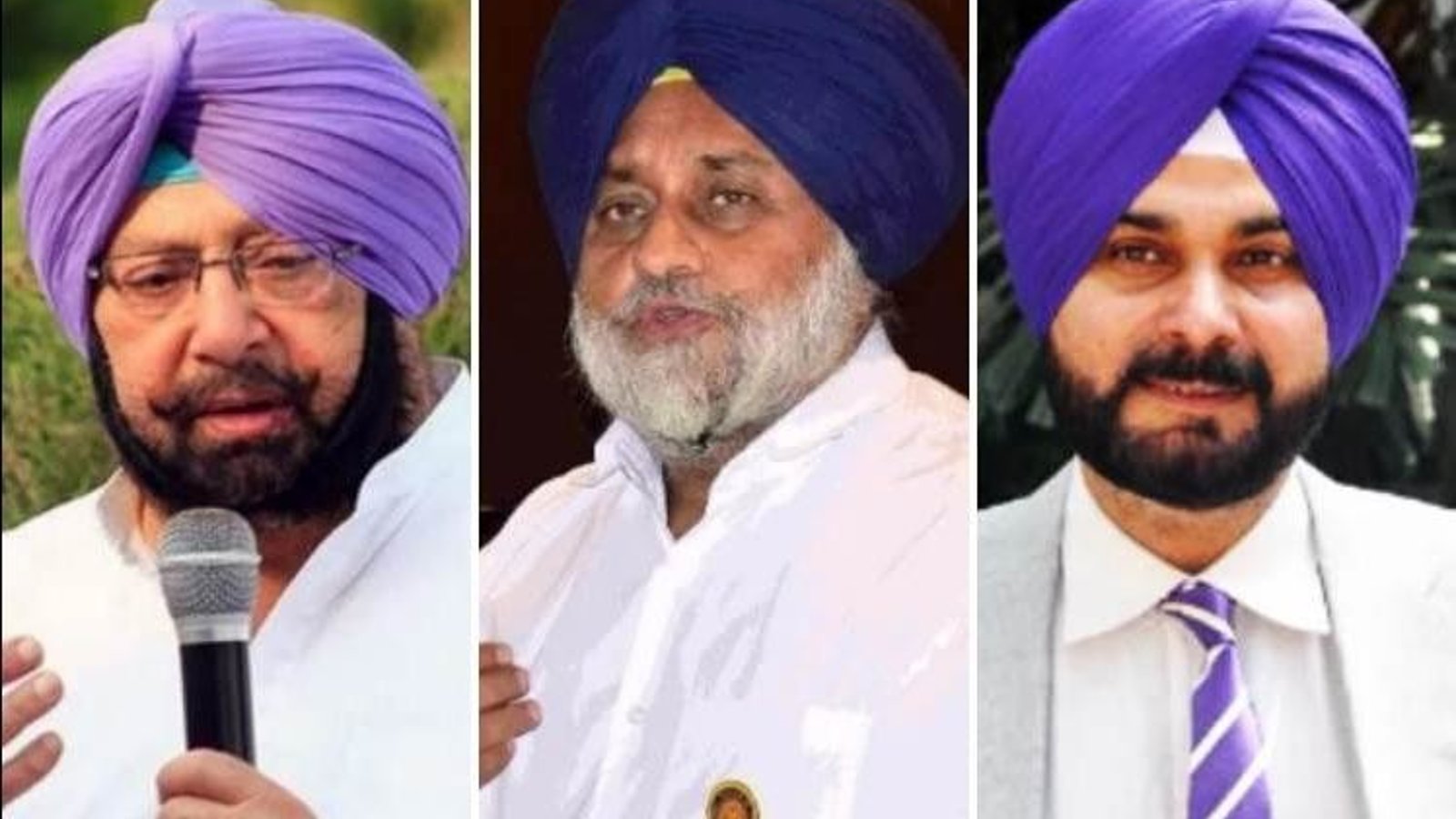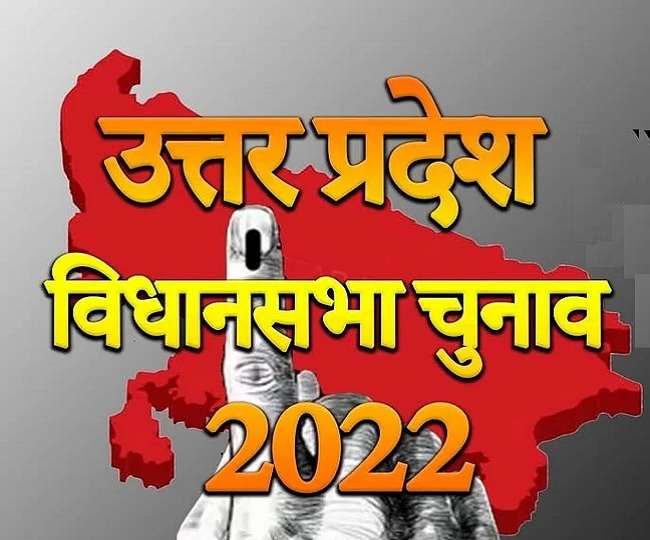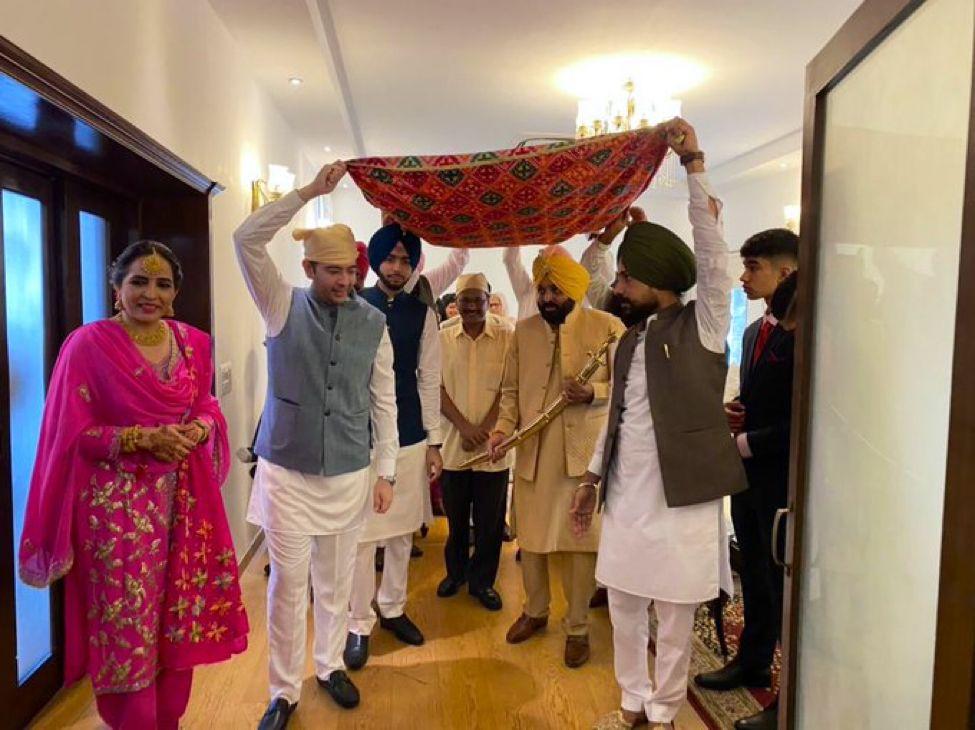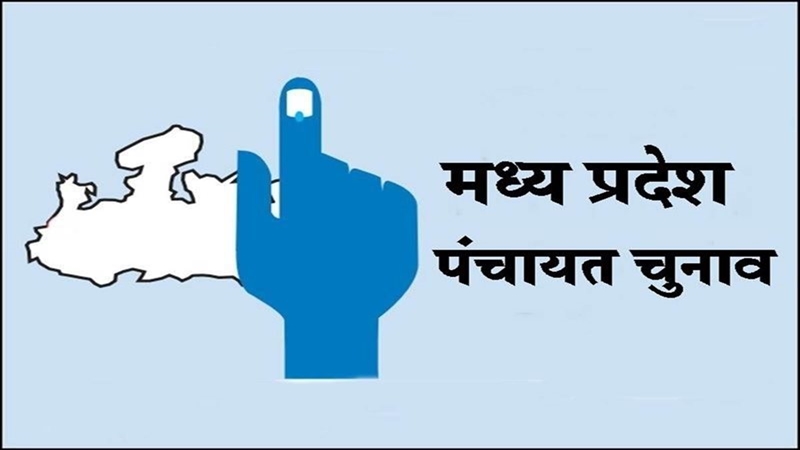The media festival has started as soon as the elections of
five states are declared. It is being said that these elections are the
semi-finals of the Lok Sabha elections to be held in 2024 and all those
political parties including BJP, Congress, who are in the fray, will be tested
in these elections. But the reality is that these elections are not going to
prove to be a litmus test for political parties but for the general public or
voters. Because the results of these elections will be the measure of the mind
of the voters and according to them the future political direction, condition
and issues of the country will be decided which will prepare the role of the
next Lok Sabha elections.
Each party has its own challenge
Of the five states where assembly elections are being held,
four are in Uttar Pradesh, Uttarakhand, Goa and Manipur with BJP governments,
while the Congress is in power in Punjab. That is, to save the BJP its four
states as well as in Punjab where it is going for the first time without the crutches
of Akali Dal, I have a challenge to bloom lotus on my own. At the same time,
the goal of Congress is to save its government in Punjab and form the
government in Uttarakhand, Manipur, Goa and perform a miracle in Uttar Pradesh
under the leadership of Priyanka Gandhi. On the other hand, in Uttar Pradesh,
the Samajwadi Party is in the fray with the intention of stopping the BJP
alliance with its allies and forming its own government. So BSP's effort is to
bring at least so many MLAs that no government can be formed without it. The
Aam Aadmi Party is trying its best not to miss the government formation in
Punjab this time and is also in the fray in Uttarakhand, Goa and Uttar Pradesh.
As always, PM Modi will be the commander
In these assembly elections, Prime Minister Narendra Modi
will again be the general of the BJP, whose popular image the party will try to
capitalize on in every election state. With Modi as his warlord, Chief Minister
Yogi Adityanath, Union Home Minister Amit Shah, BJP President JP Nadda, Defense
Minister Rajnath Singh, Union Minister Nitin Gadkari and all the big leaders of
BJP have started campaigning in Uttar Pradesh. On the other hand, in the
Congress in Punjab, where Chief Minister Charanjit Singh Channi, State Congress
President Navjot Singh Sidhu, former State President Sunil Jakhar etc. are
leaders, while in Uttarakhand, former Chief Minister Harish Rawat is the savior
of the party. In Punjab, Uttarakhand, Uttar Pradesh and Goa, the Aam Aadmi
Party has maximum confidence in the face of Delhi Chief Minister Arvind
Kejriwal. Former Chief Minister Akhilesh Yadav, president of the Samajwadi
Party, is single-handedly giving a strong fight to Modi Yogi's army. Whereas
BSP chief Mayawati trusts the loyalty of her mass base more than campaign.
However, party general secretary Satish Mishra, like in 2007, has done meetings
in almost the entire state to connect the Brahmins.
Responsibility of political parties amid Corona's transition
Like Bihar and West Bengal, these assembly elections are
also being held under the shadow of the corona epidemic. The elections of Bihar
were held during the phase of the first wave of Corona, while the elections of
West Bengal, Assam and Tamil Nadu were held in the peak phase of the second
wave of Corona when people across the country were worried about the deaths and
treatment due to corona infection. were battling. Now the elections in five
states have started in the initial phase of the third wave of Corona, when
there is an apprehension that if necessary steps are not taken, then the third
wave can also be frightening. That is why this time, taking lessons from the
beginning, the Election Commission has given a message and instructions to the
political parties and people to strictly follow the Corona restrictions. The
Election Commission on its part has made all arrangements to conduct elections,
avoiding corona infection. And more and more election campaigning has been
asked to be done through digital and media. Till January 15, all types of
rallies, processions, processions and any political program involving gathering
have been completely banned. The further decision will be taken after reviewing
the situation after January 15. The commission has completely banned the
victory processions after the victory and has also given the facility to make
nominations without crowd or online. All anti-corona measures including
increase in the number of polling booths have also been taken. Now it is the
responsibility of the political parties to not only strictly follow the
guidelines and restrictions of the Election Commission themselves, but also to
get them done by their supporters. Even more, it is the great responsibility of
the general public to follow the Corona restrictions themselves and put
pressure on the political parties to follow them and not allow crowds during
the election campaign.
BJP's cut on opposition issues
Now if we talk about the issues in these elections, then the
most important issues for the opposition are inflation, unemployment, prices of
diesel petrol, price and shortage of fertilizers, increased price of gas
cylinders, increased electricity rates, decaying economy, small shopkeepers,
traders and There are sluggishness in the business of entrepreneurs, the
problem of stray and abandoned animals, crimes against women, oppression of
downtrodden and marginalized sections. Along with this, during the first wave
of Corona, the sufferings of migrant laborers who reached their villages by
walking thousands of miles and in the second wave a large number of deaths due
to illness and lack of treatment, bodies flowing in the Ganges and other rivers
and buried on the banks. The dreadful memories of long lines at crematoriums
and graveyards will also be raised by the opposition in the election campaign.
To cut these, the ruling Bharatiya Janata Party in four
states announced projects worth thousands of crores by Prime Minister Narendra
Modi; By making the Purvanchal Expressway an issue, it is trying to blunt the
edge of negativity and anti-incumbency trends arising out of the opposition's
allegations with its developmental announcements. Along with this, BJP is
trying to warn the public in Uttar Pradesh by declaring the rule of Samajwadi
Party as the secret of criminals that if SP wins, then the rule of those mafia
will return, which Yogi government has either sent to jail or else. Killed in
police encounters. All BJP leaders including Prime Minister Modi, Home Minister
Amit Shah, Chief Minister Adityanath, party president JP Nadda are raising this
issue vigorously in their meetings. When they say mafia, they usually refer to
the likes of Atiq Ahmed and Mukhtar Ansari, which serve two targets, one that
raises the slogan of the BJP against criminalization and at the same time helps
in anti-Muslim polarization. While many criminals and people with mafia
character are also seen in the corridors of power and on the platform of BJP
leaders. The opposition is also making it an issue in its own way,
Challenge of social equation in front of BJP
In these elections, the biggest challenge before the BJP in
Uttar Pradesh is to keep its social equation simple, due to which it has got a
massive victory in the 2014, 2017 and 2019 elections in Uttar Pradesh. In these
elections, where the upper caste Hindus were completely with it, the BJP got
huge support of non-Yadav backward and non-Jatav Dalits and in a way the
Hindutva concept of the RSS overshadowed the caste mobilization. But this time
the situation has changed. Despite contesting elections by making Keshav Prasad
Maurya the state president, the sudden appointment of Yogi Adityanath as the
chief minister, the BJP's mockery on the issue of caste census, and the
supremacy of the upper castes in the governance administration have angered the
backwards. While the farmers' agitation angered the Jats and other peasant
castes, who had been a strong ally for the BJP in the last three elections in
western Uttar Pradesh, it is difficult to say how far their displeasure has
gone despite the withdrawal of all three agricultural laws. On the other hand,
incidents like Sonbhadra, Hathras, killings of Dalits in Agra Ballia Prayagraj
and police arbitrariness in the name of encounter, killing of young businessman
in Gorakhpur have affected the image of the government.
While Priyanka Gandhi
herself created trouble for the government on every such incident on behalf of
Congress, Akhilesh Yadav of SP is now raising them in every meeting.
Akhilesh's backward revolution in front of BJP's Hindutva
Sensing this social discontent, Akhilesh Yadav has named his
election campaign as Backward Ki Inquilab. And he called Om Prakash Rajbhar's
party, Sanjay Chauhan's party, Keshavdev Maurya's Mahan Dal, Jayant Choudhary's
Rashtriya Lok Dal, Apna Dal's founder Sonelal Patel's wife Krishna Patel,
Efforts to expand the support base of SP by taking along the leaders of many
backward and peasant castes including Pal Samaj leader Rajaram Pal, Jats
leaders Harendra Malik and Pankaj Malik, Sukhdev Rajbhar's son Ramchal Rajbhar,
Lalji Verma joined the SP from Congress. is of. There is also talk of alliance
with the SP of Aam Aadmi Party. Akhilesh Yadav's eyes are also on Sanjay
Nishad, leader of the Nishad Party, who went with the BJP and some ministers of
the Yogi government. Akhilesh's attempt is to reverse the elections by forming
a backward alliance of Mandal's era in the cut of Hindutva of BJP. Apart from
this, the Brahmin community, which constitutes about 12 percent in the state,
is the most vocal voter group in this election. There is a competition among all
the parties to take it with you. The BJP considers it to be its traditional
support base and after the weakening of the Congress, the BJP has been the
natural choice and party of the Brahmins. But in 2007, the BSP's slogans
'Pandit Shankh Bajga Haathi Badhte Jayega' and 'Hathi Nahi Ganesh Hai Brahma
Vishnu Mahesh Hai' led a large number of Brahmins to join the BSP and it formed
an absolute majority government. Later the Brahmins joined the SP and then the
BJP in 2012. This time due to various reasons, there has been a perception in
the state that Brahmins are neglected. And that is why while the Samajwadi
Party is trying to connect the Brahmins by inaugurating the Parshuram temple,
the BSP has tried this through enlightened conferences by forwarding Satish
Mishra. At the same time, BSP is also raising the issue of Khushi Dubey, who is
in jail in the Vikas Dubey case, and Satish Mishra himself is fighting a legal
battle for it.
Priyanka Gandhi played the stake of gender justice
To counter the BJP's Hindu polarization and the SP's caste
mobilization, the Congress has played the gamble of gender justice by putting
forward Priyanka Gandhi. Priyanka Gandhi has issued a separate party manifesto
for women, promising to give special opportunities to women, from giving 40
percent tickets to women to giving smart phones and scooties to girl students. Priyanka
has held women's pledge rallies from Gorakhpur Varanasi to Mahoba and
Chitrakoot with the slogan Ladki Hoon Lad Sakthi Ho and girls' marathon races
are being organized in many cities. Priyanka made women's safety and
empowerment such a big issue that even Prime Minister Narendra Modi had to
address the women's convention in Prayagraj. Apart from this, Congress is also
making promises like providing fair price for wheat, paddy to the farmers,
halving electricity bills. Going ahead, Akhilesh Yadav has promised to provide
electricity free of cost, so before the announcement of the election, the Yogi
government halved the electricity bills. Overall, there are stakes in Uttar
Pradesh elections ranging from development tropes to religious, caste and
gender polarization.
Congress in Uttarakhand and Punjab
In Uttarakhand, the Congress has started projecting the
issue of the BJP changing three chief ministers in five years as an insult to
the mandate and incompetence of the government. Although the third Chief
Minister Pushkar Singh Dhami is working very hard. But he is also facing
opposition from within his party and outside. At the same time, Harish Rawat
also had to face factionalism within the Congress and when he showed sharp
attitude, the high command gave him full authority. Rawat has focused his
election campaign on the issue of Uttarakhandiyat. At the same time, this time
the elections in Punjab have become multi-polar, not two-polar. Apart from the
Congress and Akali BSP alliance, Aam Aadmi Party, BJP and Captain Amarinder
Singh's Punjab Lok Congress alliance, after the farmers' agitation Balbir Singh
Rajowal's party and Gurunam Singh Chaduni's party are also in the fray. At one
time it seemed that the Congress would win again in Punjab under the leadership
of Captain Amarinder Singh. But when Captain Sidhu was removed from the post of
Chief Minister after a quarrel, the Congress seemed to have taken an ax on its
feet. The BJP saw an opportunity for itself as the Akali Dal had already parted
ways. Befriended and made electoral arrangements. But just as Charanjit Singh
Channi, who became the Chief Minister of Punjab in the last few months, not
only pacified his opponents within the party and weakened the opposition of
state president Navjot Singh Sidhu, on the other hand his style of
communicating directly with the general public. quickly made him popular. Channi's
political response to the issue of security breaches during Prime Minister
Narendra Modi's visit to Ferozepur on January 5 has enhanced his stature. At
the same time, being the first Dalit Chief Minister of the state, the Congress
has full confidence in the support of 33 percent of the Dalits of the state. On
the other hand, instead of Parkash Singh Badal, the entire command of the Akali
Dal has now come in the hands of his son Sukhbir Badal and the Akali Dal
Leaders like Sukhdev Singh Dhindsa have parted ways in me, this has also
weakened the hold of the Akali Dal. The Akali Dal also finds it difficult to
get the support of urban and especially Hindu voters due to the break-up of the
alliance with the BJP. While the BJP faces the tough challenge of contesting
alone in the rural areas of Punjab, which it has strategized to fulfill through
Captain Amarinder Singh. But the way people are not coming to Amarinder Singh's
meetings, BJP is also worried about it. At the same time, the Aam Aadmi Party,
which may not have been able to form the government in spite of all the efforts
in the last elections, had definitely left the Akali Dal behind. This time the
Aam Aadmi Party is again in the fray and has also given a slogan to give a new
alternative. But its problem is that it does not have any local face of Punjab.
So Chief Minister Channi also made Punjab and Punjabiyat an issue. started
making. Because BJP wants to make nationalism an issue in border Punjab and use
security breach in PM's convoy as a big weapon, Channi wants to cut it with
Punjabiyat. How and to what extent is the Congress under the leadership of
Channi able to counter the nationalism of BJP and the challenge of AAP. Whereas
the condition of Akali Dal is visible in Punjab as it is seeing in Uttar
Pradesh of its ally BSP.
Challenge of BJP to form government with absolute majority in Goa and Manipur
The Congress emerged as the single largest party in Goa and
Manipur in the last elections as well, but the BJP manipulatively formed its
government in both the states. This time in Goa, the BJP is in the fray without
its stalwart leader Manohar Parrikar, and one of the BJP camps is very
uncomfortable with the current Chief Minister. On the other hand, along with
the Aam Aadmi Party, this time Trinamool Congress has also put a dent in Goa to
eclipse the prospects of the Congress. But the main contest is between the
ruling BJP and the opposition Congress. The same situation is in Manipur. Here
in BJP most of the leaders are the same. Those who were earlier in the
Congress, while the Congress is in the fray with its new leaders. Assam Chief
Minister Himanto Vishwasarma is the chief strategist of BJP's Northeast
politics. If Congress again misses majority in Goa and Manipur, BJP can repeat
past history.
That is why these elections are more a test of the general
public and voters than political parties as to what issues they like and what
mandate they give.
Is there inflation, unemployment, women's security, women's
empowerment in Uttar Pradesh, corona mismanagement, police excesses, dalit
oppression, derailment of business industry, manure crisis, decreasing income
of farmers, problem of stray and abandoned animals, expensive petrol diesel,
kitchen People will vote keeping in mind the gas Or will vote by giving
preference to announcements of development projects, foundation stones and
inaugurations, free ration, fear of deteriorating law and order from Muslim
mafia, Kashi Vishwanath Dham, Ram temple in Ayodhya, development of Shri
Krishna temple in Mathura, Jinnah and cow slogans. Will the people form the
double engine government of Modi Yogi again for the next five years or will
they trust Akhilesh again, the youth who started the journey of development in
the state through Lucknow-Agra Expressway and Metro Rail projects. Will people
flow in the Hindu polarization of BJP or will the slogan of SP's caste
mobilization and backwards inquilab show its colours. Will Priyanka Gandhi's
slogan of women empowerment, 40 percent women get tickets and with her
participation, will the slogan of Ladki Hoon Lad Sakini Hoon overcome religious
and caste polarization and bring half of the state's population to the Congress
or will women come from the social background of their families? And will vote
according to the political preferences of the husbands. Will Mayawati, who is
considered to be the top of law and order, be able to do some charisma on the
basis of her Dalit mass base and will Satish Mishra be able to connect Brahmins
with her like in 2007 or will BSP seats remain close to last time even after
saving her vote bank? Will go More or less similar questions will be in front
of the voters of Punjab, Uttarakhand, Goa and Manipur and their decision will
decide the future political direction of the country and the states. Therefore,
it is more a litmus test for voters than for parties.






